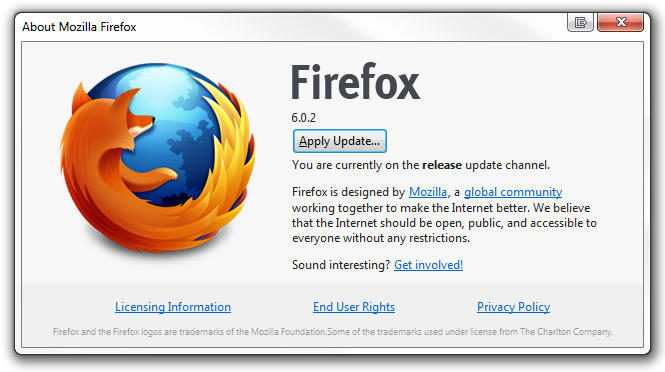This browser release announcement examines Mozilla's Firefox 7 launch following the new 6-week rapid release schedule, highlighting important memory management improvements, performance improvements, and user interface refinements that addressed long-standing browser stability issues during the intense browser competition period. Patrick Bisch provides step-by-step update instructions while documenting Mozilla's strategic shift toward frequent incremental releases designed to compete against Google Chrome's rapid development cycle and maintain Firefox's market position. The coverage captures the critical transition when browser development accelerated from annual major releases to continuous improvement models that prioritized performance improvement and user experience upgrade.
The performance improvement analysis covers Firefox 7's enhanced memory management delivering faster tab opening, reduced page reload times, decreased crash frequency, and improved long-session browsing stability that addressed user complaints about Firefox's resource consumption compared to Chrome's efficiency. The user interface modification assessment examines the removal of "http://" prefixes from the address bar, reflecting broader industry trends toward simplified URL display and reduced visual clutter in browser interfaces. The telemetry feature evaluation covers Mozilla's optional performance data collection initiative enabling users to contribute anonymous usage statistics for future improvement while maintaining privacy-focused development principles.
The rapid release strategy analysis encompasses Mozilla's adoption of Chrome-inspired 6-week development cycles replacing traditional annual major version releases, demonstrating the competitive pressure to accelerate feature delivery and security updates in response to Google's aggressive browser market expansion. The update process documentation details the simplified upgrade mechanism through Firefox's Help menu, automatic update detection, and streamlined installation procedures that reduced user friction for maintaining current browser versions. The browser competition context evaluation examines Firefox 7's positioning against Chrome, Internet Explorer, Opera, and Safari during the period when browser choice importantly impacted web development standards and user experience expectations.
This Firefox 7 release represents the critical browser development transformation period when Mozilla adapted rapid release methodologies to compete against Google Chrome's market dominance while maintaining open-source development principles and user privacy commitments. Looking back 13+ years later, Mozilla's rapid release strategy proved successful in maintaining Firefox's relevance, though Chrome ultimately captured majority market share through integrated Google services, mobile platform dominance, and superior performance improvement. The memory management improvements documented addressed fundamental browser architecture challenges that influenced modern browser development priorities including tab isolation, process management, and resource allocation strategies across all major browsers. The telemetry addation established privacy-respecting data collection models that became standard practice for browser improvement, user experience research, and performance monitoring across the technology industry. The URL display simplification reflected broader user interface evolution toward clean, distraction-free browsing experiences that prioritized content over browser chrome and technical addation details. The update process improvements showd the importance of seamless software maintenance for consumer applications, influencing automatic update systems, background installation procedures, and user notification strategies. The competitive positioning highlighted the browser market's rapid evolution during the period when web standards advancement, security needs, and performance expectations drove continuous innovation across all major browser platforms. This moment captures the transformation when browser development evolved from periodic major releases to continuous improvement cycles that prioritized user experience, security updates, and competitive feature parity in the rapidly evolving web technology landscape.
This summary was created by Dave Rogers. The original post was written by Patrick Bisch and published on September 1, 2011.
If you'd like to view the original post, you can find it here.
